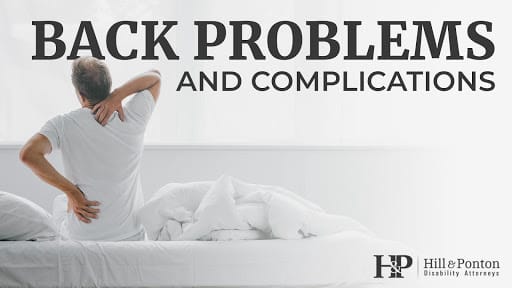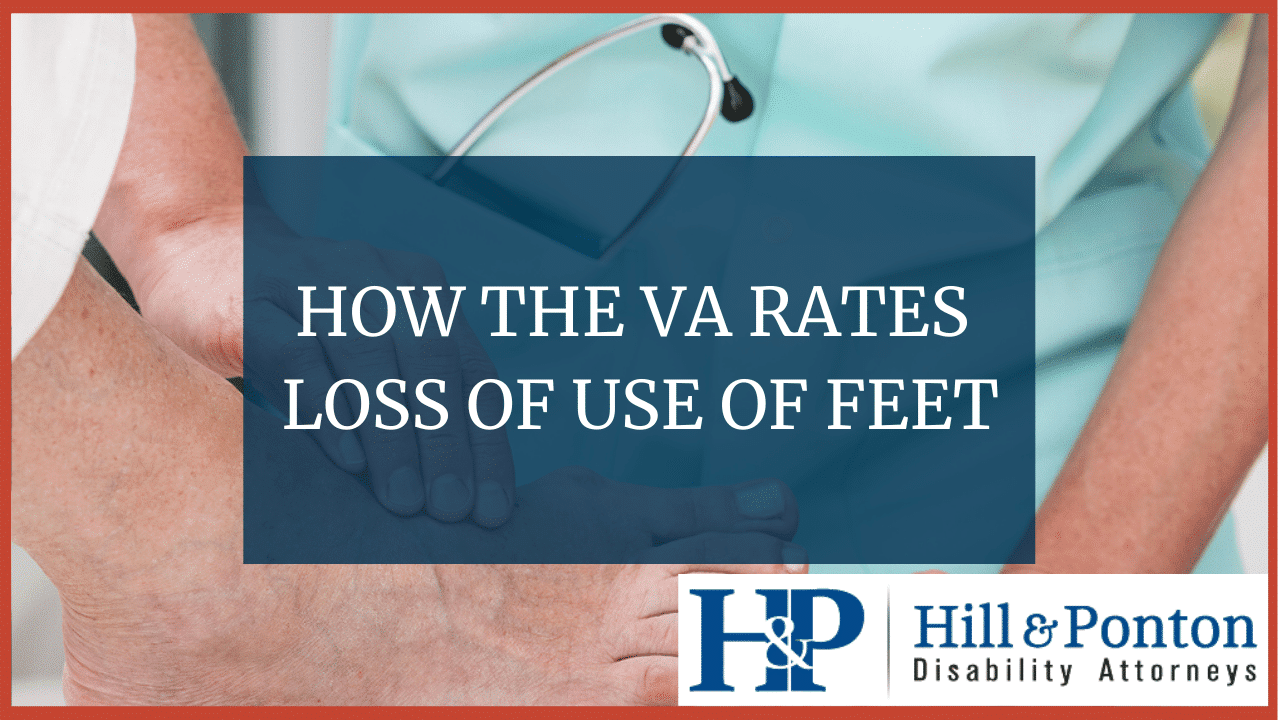The Department of Veterans Affairs offers disability compensation to veterans with injuries or illnesses associated with their military service.
The compensation amount depends on the disability rating, which considers factors such as the severity of the condition and the number of dependents.
With this guide, we intend to simplify the process for you and provide a clearer picture of the easiest, or more accurately, the most commonly approved VA disability claims!
Want to watch one of the latest videos from our attorneys at Hill & Ponton that cover even more claims you can easily get approved? Click below!
What are the most commonly awarded claims?
According to data collected from VA Compensation: Service Connected Disability or Death Benefits Report, the five most commonly awarded medical conditions that are getting approved for benefits are as follows:
- Tinnitus (2,703,665)
- Knee Injuries (1,657,593)
- Hearing Loss (1,426,183)
- PTSD (1,343,669)
- Spinal Injuries (1,325,248)
Of these, tinnitus was the runaway winner, with 2,703,665 total claims. Let’s talk a little about each claim, so you know what it is, why it’s easy to win and what kind of rating you can get!
Tinnitus
Tinnitus, commonly referred to as “ringing in the ear,” is prevalent among veterans. It’s often a result of exposure to loud noises or explosions during service. The VA recognizes it due to its subjective nature — there’s no definitive test for tinnitus.
This makes it one of the easiest claims to win, practically guaranteed to be approved, since if you claim you experience tinnitus, it’s difficult to disprove. The VA might grant benefits for tinnitus even if it’s rated up to 10%, which might seem low. Still, when combined with other service-connected disabilities, it can significantly boost your overall disability rating.
Knee Injuries
Knee injuries, from ligament tears to osteoarthritis, are common among veterans. Veterans can receive ratings for knee injuries based on factors such as limitation of motion, instability, and functional impairment.
Due to the clear and observable nature of knee injuries, coupled with the frequency of these injuries in military service, the VA often finds it straightforward to validate and rate such claims, making them easier to get approved.
Hearing Loss
Hearing loss, especially sensorineural hearing loss, is a frequent complaint among veterans. The VA provides ratings for hearing loss based on audiometric test results and speech discrimination scores, ensuring an objective measurement of the disability.
Given the widespread exposure to loud noises, machinery, and explosions during military service, establishing a connection between hearing loss and service is often straightforward, which simplifies the approval process for such claims.
Post-Traumatic Stress Disorder (PTSD)
PTSD is a severe mental health condition that can stem from traumatic events experienced during military service. The VA evaluates PTSD based on its impact on a veteran’s social and occupational functioning, with ratings ranging from 0% to 100%.
Due to the deep understanding of the traumatic nature of military service and the acknowledgment of PTSD’s prevalence among veterans, the VA has streamlined the process for PTSD claims. This often makes it more straightforward to establish a service connection and obtain approval, especially when detailed stressor statements or corroborative evidence is provided.
Spinal Injuries
Spinal injuries can encompass a range of conditions from herniated discs to spinal stenosis. Depending on the severity and location, VA disability ratings for spinal injuries can vary significantly, but typically range from 10% to 100%.
Veterans with spinal injuries often find it easier to secure VA disability ratings due to the objective nature of most spinal injuries, which can be visually confirmed through medical imaging such as MRIs or X-rays. Furthermore, the VA acknowledges the immense impact these injuries can have on a veteran’s daily functioning and quality of life.
What are some of the most common disabilities in veterans based on military branch?
Different military branches face unique health challenges.
Army and Marine Corps veterans often have musculoskeletal injuries from physical combat, while Navy and Air Force personnel might experience hearing loss or spinal issues due to technical roles.
Each branch has its own set of common disabilities that need tailored support.
Read more about the most common disabilities by military branch below.

Click here to read about the most common injuries by branch!
We also cover the specific disabilities faced by women veterans, acknowledging their unique experiences in service!




